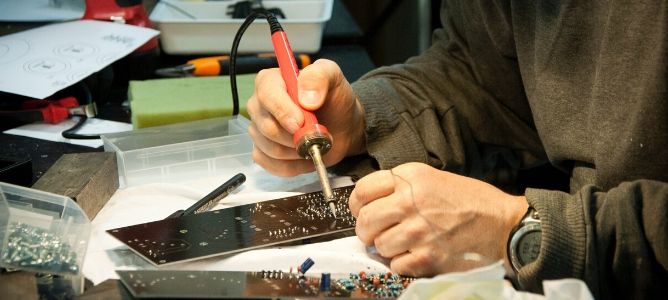
Last Updated on October 25, 2024 by Surender Kumar
There’s something uniquely special and important about hands-on professions. When you think about it, most of the important things in life are done with your hands. You cook food, you build things, and you care for your families and friends.
Hands-on professions are some of the most important in the world. Keep reading to learn about different types of hands-on professions.
Table of Contents
Contractor
Most people in the world have a nine-to-five job. They go to work, do their job, and come home. They may have a few hobbies on the side, but for the most part, their lives are pretty mundane.
Then there are the people who have a more hands-on profession. They are always working, always on their feet, and always making things happen. Contractors are some of those people. For contractors, such as the workers from James Hardie Siding Installation Basehor, KS, offering siding services, their work is their hobby.
They are always looking for the next job, the next project, and the next opportunity to show their skills. They are always working on something, and they never stop learning. Contractors are always looking for new ways to improve their skills and their work.
Laboratory Scientists

Medical laboratory scientists have a hands-on profession where they are responsible for the diagnosis of disease. They use their knowledge of biology and chemistry to conduct tests on body fluids and tissues by making the most of top-quality lab equipment like fume hoods from Genie Scientific and similar companies. This is a critical role in the health care system, as their work helps to determine the best way to treat patients.
Many laboratories rely on LIS software (Laboratory Information Systems) to manage complex data and streamline operations. This software enables lab technicians to efficiently track samples, document test results, and ensure accuracy in the diagnostic process. By automating data management and reducing the risk of errors, LIS software supports lab professionals in delivering reliable and timely information essential for patient care.
Medical laboratory scientists must be able to think critically and problem-solve. They must also be able to work independently and as part of a team. Because the work can be complex, it is important that medical laboratory scientists have a strong understanding of biology and chemistry.
Medical laboratory scientists typically have a bachelor of science medical laboratory science degree. After completing their degree, they must pass a certification exam. This certification is administered by the American Society for Clinical Pathology (ASCP).
Tattoo Artist
There are many different types of hands-on professions. One such profession is that of the tattoo artist. Tattoo artists must be skilled in the use of a variety of tools, including needles and ink, in order to create tattoos. They must also be able to create designs that are both attractive and anatomically accurate.
Tattoo artists must be able to work with clients to help them choose the right design and placement for their tattoos. They must also be able to answer any questions clients may have about the process or aftercare of their tattoos.
Electrician

Electricians are tradespeople who install and maintain electrical systems. They work in a variety of settings, including homes, businesses, and factories. Some electricians specialize in wiring and lighting for buildings, while others focus on industrial or commercial equipment.
Electricians must be able to read blueprints and diagrams, identify problems, and make repairs. They also need to understand electrical code requirements. Many electricians have an associate’s degree or a certificate from a technical school. Some states require electricians to be licensed.
Hairstylist
A hairstylist is someone who cuts and styles hair. They may also color or perm hair. There are many different types of hair stylists, including those who specialize in certain types of hair or in certain styles. Some work in salons, while others work in spas or even hotels.
Hair stylists typically have a high school diploma or equivalent, but some go on to get cosmetology degrees.
Overall, different types of hands-on professions are important because they provide people with the necessary skills to complete various tasks. Additionally, these professions help to build a person’s character and provide them with opportunities to learn new things.

I am a passionate blogger having 10 years of experience in blogging and digital marketing. I started List Absolute in 2018 to give my passion a live platform. I have also a good hand in writing unique and quality content. Here I contribute in my free time. Thanks for reading. Let me know if I can help you get your work done in a timely manner.
